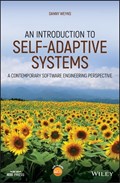A concise and practical introduction to the foundations and engineering principles of self-adaptation
Though it has recently gained significant momentum, the topic of self-adaptation remains largely under-addressed in academic and technical literature. This book changes that. Using a systematic and holistic approach, An Introduction to Self-adaptive Systems: A Contemporary Software Engineering Perspective provides readers with an accessible set of basic principles, engineering foundations, and applications of self-adaptation in software-intensive systems.
It places self-adaptation in the context of techniques like uncertainty management, feedback control, online reasoning, and machine learning while acknowledging the growing consensus in the software engineering community that self-adaptation will be a crucial enabling feature in tackling the challenges of new, emerging, and future systems.
The author combines cutting-edge technical research with basic principles and real-world insights to create a practical and strategically effective guide to self-adaptation. He includes features such as:
Perfect for researchers, students, teachers, industry leaders, and practitioners in fields that directly or peripherally involve software engineering, as well as those in academia involved in a class on self-adaptivity, this book belongs on the shelves of anyone with an interest in the future of software and its engineering.

